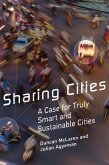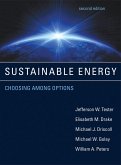Hydrogen is the quintessential eco-fuel. This invisible, tasteless gas is the most abundant element in the universe. It is the basic building block and fuel of stars and an essential raw material in innumerable biological and chemical processes. As a completely nonpolluting fuel, it may hold the answer to growing environmental concerns about atmospheric accumulation of carbon dioxide and the resultant Greenhouse Effect. In this book Peter Hoffmann describes current research toward a hydrogen-based economy. He presents the history of hydrogen energy and discusses the environmental dangers of continued dependence on fossil fuels. Hydrogen is not an energy source but a carrier that, like electricity, must be manufactured. Today hydrogen is manufactured by "decarbonizing" fossil fuels. In the future it will be derived from water and solar energy and perhaps from "cleaner" versions of nuclear energy. Because it can be made by a variety of methods, Hoffmann argues, it can be easily adapted by different countries and economies. Hoffmann acknowledges the social, political, and economic difficulties in replacing current energy systems with an entirely new one. Although the process of converting to a hydrogen-based economy would be complex, he demonstrates that the environmental and health benefits would far outweigh the costs.
Dieser Download kann aus rechtlichen Gründen nur mit Rechnungsadresse in A, B, BG, CY, CZ, D, DK, EW, E, FIN, F, GR, HR, H, IRL, I, LT, L, LR, M, NL, PL, P, R, S, SLO, SK ausgeliefert werden.









